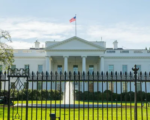Pennsylvania Nuns Falsely Accused of Voter Fraud Speak Out

In Pennsylvania, a Republican canvasser’s claims of widespread voter fraud sparked controversy after he alleged that 53 voters were registered at an address linked to a local Catholic church, yet no one lived there. The truth? Those voters are actually 55 nuns residing at the Benedictine Sisters of Erie.
A Misunderstanding Turns Viral
Cliff Maloney, founder of The Pennsylvania Chase, shared his findings on X, suggesting a scandal of electoral fraud. However, the nuns’ bustling monastery, which has been a community staple since the 1850s, paints a very different picture. Sister Annette Marshall reflected on the absurdity of the situation, stating, “We’ve always been very vocal about peace and justice… But I’ve never heard us accused of fraud.”
The Benedictine Sisters have deep roots in Erie, moving to their current facility in 1969, partly funded by their own musical group reminiscent of “Sister Act.” Their dedication to community service has earned them a respected place in Erie.
Combating Misinformation
Maloney leads a conservative initiative to encourage mail-in voting among Republicans, while also spreading baseless allegations about election security. Local officials are actively countering the misinformation that runs rampant on social media, including Maloney’s accusations. Pennsylvania Secretary of State Al Schmidt publicly commended Sister Stephanie Schmidt for standing up against disinformation.
Maloney did not respond to requests for comment from CNN.
Navigating Election Season
As Pennsylvania approaches another critical election cycle, the eyes of the nation are fixed on Erie County, which has swung between Democratic and Republican candidates in recent elections. Sister Stephanie emphasized that while they encourage voting, the Benedictine Sisters maintain a nonpartisan stance, allowing each sister to vote according to her conscience.
Many sisters have already submitted their ballots, while others plan to vote in person on Election Day. Despite their busy lives—often filled with social work and community involvement—they remain dedicated to participating in the democratic process.
Responding to Accusations
Following Maloney’s claims, the sisters strongly refuted the assertion that they are non-existent. Sister Diane Cook recounted how they would have readily provided a list of residents had the canvasser made an effort to engage with them. “We’re not a group that’s just going to let them walk all over us like that,” she declared.
With rising tensions surrounding mail-in voting and electoral integrity, accusations of fraud can have serious implications. Maloney’s narrative gained traction when retweeted by America PAC, further amplifying the false claims.
A Call for Accountability
The Benedictine Sisters understand the ramifications of social media and have publicly called for Maloney to retract his statement. They expressed that a simple apology could resolve the matter, but Sister Cook remains skeptical of his willingness to acknowledge the error.
“I’d like to get him out here and show him the house and get him to understand what the community does,” she said, underscoring their commitment to transparency and community engagement.





















